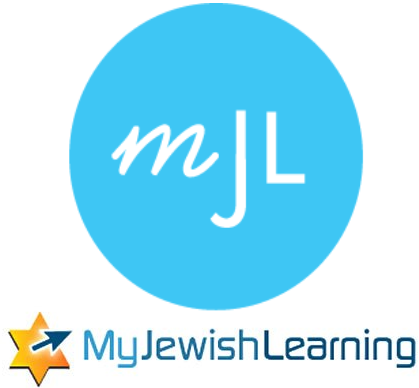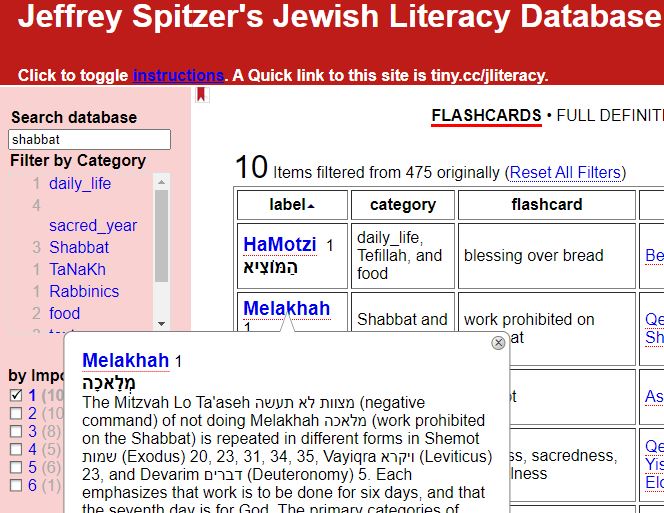Family Education at Temple Israel
What are the goals?
We have three goals for family education at Temple Israel. First, we want all members of our families to learn and grow in their Judaism,
but the normal religious school environment is somewhat limited due to the pandemic. So we are relying on parents to work with their children,
with my guidance. Our theme of learning about American Judaism will hopefully be something that parents and children can enjoy and be challenged by.
Our second goal is to develop a life-long habit of learning as a family. Modeling and engaging in Jewish learning and Jewish projects is a great way to develop
as individuals and to grow closer as a family. And the third goal, through the havdalah programs, is to maintain and deepen our ties to each other
and to the Temple Israel of Scranton community.
How does the learning work?
Each month, I will post materials you can choose from to learn as a family. These might include a video or a short text
or some images that you will access online. As I get to know you, I will be able to provide materials that are appropriate,
interesting, and challenging for your families. Please look at the materials as soon as I send them.
These materials are hosted on my website, which is called ConversationalTorah.com. Conversational Torah (CT) is a vision of teaching and pedagogy based on how rabbinic texts (Torah she'b'al Peh/תורה שבעל פה/oral Torah) create conversations between students from different times and different places. You and your children both share a place, but also have very different sets of experiences. They have not had all of your background (and baggage) so children are ideal learning partners. Remember to listen to each family member and make space for each person to share in the conversation.
These materials are hosted on my website, which is called ConversationalTorah.com. Conversational Torah (CT) is a vision of teaching and pedagogy based on how rabbinic texts (Torah she'b'al Peh/תורה שבעל פה/oral Torah) create conversations between students from different times and different places. You and your children both share a place, but also have very different sets of experiences. They have not had all of your background (and baggage) so children are ideal learning partners. Remember to listen to each family member and make space for each person to share in the conversation.
What are the projects?
As a family, you will try to capture some aspect of your learning in a project. This might mean dressing up as a
character, making an online presentation or a poster, or learning a song or an age-appropriate creative writing or art project,
or making up a game, or preparing for a celebration using the materials you learned as a family. If you have ideas of how you
and your family can share your learning in an active and productive way, please tell me so I can share your ideas with all
of the participants in our family education program. Be creative, and again, listen to the ideas of each member of your family, and
make sure that each person has a part in producing and/or presenting your project.
What will we do at our Havdalah programs each month?
At Havdalah, we will gather to say goodbye to shabbat. Each family observes shabbat differently, but havdalah works best if you have
actually been observing shabbat. So at least on the weeks when we are going to gather together for havdalah, try to expand your Shabbat observance.
Here are some ideas: make a shabbat dinner, tune in to our livestream services at Temple Israel, ask for a volunteer to find an online Torah comment
on the weekly portion to share with the family, and/or sing some shabbat songs. Other than the livestream for services, try to make shabbat a screen-free time.
Then, when we gather together for havdalah, we will really be separating Shabbat from the rest of the week.
At the program, each family will be asked to present their project or their learning. Since each project will be different, you should think of other family’s presentations as part of your learning, because that is how they will think of your presentation. If it is possible, please take photos of your project (if it can be photographed) or video (if you've performed a skit or a song) and send it to me so people can follow along. This will be a lot easier to share than relying on Zoom.
At the program, each family will be asked to present their project or their learning. Since each project will be different, you should think of other family’s presentations as part of your learning, because that is how they will think of your presentation. If it is possible, please take photos of your project (if it can be photographed) or video (if you've performed a skit or a song) and send it to me so people can follow along. This will be a lot easier to share than relying on Zoom.
 MyJewishLearning
MyJewishLearning Sefaria
Sefaria The Jewish Studies Weblinks Database
The Jewish Studies Weblinks Database My Jewish Literacy tool
My Jewish Literacy tool The Jewish History
Timeline
The Jewish History
Timeline The Rabbinic Literature
Genre Map
The Rabbinic Literature
Genre Map